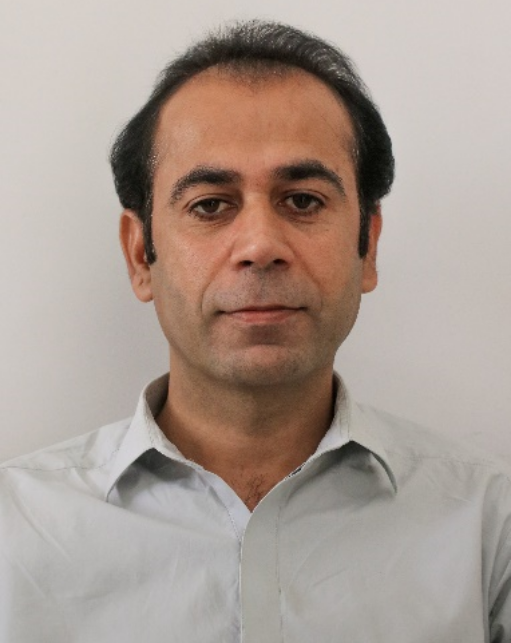Quality Enhancement Cell
- About UTQC +
- Establishment
- TORs
- Members
- Meetings
- Vice Chancellor’s Message
- About QEC +
- About
- Establishment
- Vision
- TORs
- CQI
- Director’s Message
- Contacts
- Organization +
- Functions
- Organogram
- Team
- Focal Person at Affiliated Colleges
- Memberships +
- Statuary Bodies
- External
- RIPE
- PREE
- PREE UEP
- PREE GEP
- QEC Activities +
- Activity Calendar +
- 2024-25
- 2023-24
- Seminars +
- 2024-25
- Conferences +
- 2024-25
- Workshops +
- 2024-25
- Meetings +
- 2024-25
- Trainings +
- 2024-25
-
- QEC Resources and Downloads +
- HEC +
- PSG 2023
- RIPE
- PREE
- NOC documents for MS/MPhil/PhD
- HEC’s Proformas
- QEC +
- Daily Class Activity Report
- Monthly Course Review
- Course File (video, ppt, word)
- Student Evaluation of Teacher Survey
- Student Evaluation of Course Survey
- Teacher Evaluation of Course Survey
- Teacher Satisfaction Survey
- Graduating Students Survey
- Alumni Survey
- IPER Template
- RIPE Rubrics
- PREE (SAR) Report Template
- PREE Rubrics
- Policies and Regulations +
- Balochistan Universities Act 2022
- Plagiarism Policy
- Undergraduate Rules and Regulation 2023
- Graduation Rules and Regulations
- Harassment Policies
- Faculty Workload Policy
- Visiting and Teaching Fellow Hiring Policy
- College Quality Report
- Curriculum
-
Welcome
The Quality Enhancement Cell (QEC) at the University of Turbat is the central unit responsible for planning, implementing, coordinating, monitoring and overseeing internal and external quality assurance mechanisms and enhancement activities. Established as per HEC requirements, the QEC supports the development of institutional policies for institutional and program evaluation, accreditation, curriculum development, capacity building and continuous quality improvement.
The University of Turbat Quality Circle (UTQC) is the apex institutional forum for governing quality assurance and enhancement matters within the university. Constituted under the authority of the Vice Chancellor and supported by the QEC, the UTQC serves as the regulatory and decision-making body that provides strategic oversight on quality-related policies, assessments, and interventions.
The UTQC is designed to foster institutional coordination and to embed a university-wide quality culture. It brings together key academic and administrative stakeholders to make collective decisions on the quality of education, research, student support, and institutional governance.
Its mandate includes:
- Ratifying the findings and recommendations of internal and external evaluations.
- Approving institutional strategies for academic excellence and quality improvement.
- Monitoring the effectiveness of policy implementation through performance metrics and feedback systems.
The UTQC is instrumental in ensuring that the university remains compliant with national quality assurance standards while pursuing institutional goals of excellence, transparency, and accountability.
Frequency and Quorum of Meetings
The UTQC is required to convene at least four meetings per year; typically scheduled in September, December, March, and June. The quorum for the conduct of meetings is one-half of the total membership. Decisions are taken by consensus or majority vote, with all proceedings formally documented and archived by the QEC.
Terms of Reference (ToRs)
-
Guide Strategies for Institutional Quality
- To review and approve the Continuous Quality Improvement (CQI) Policy and quality enhancement roadmap of the University.
- To provide policy-level guidance for continuous quality improvement initiatives.
-
Monitor Quality of Academic Programs
- To oversee the launch, review, suspension, or closure of academic programs based on QEC evaluations.
- To ensure that the curriculum revisions comply with program standards set by the HEC and industry requirements.
-
Review and Approve Quality Reports
- To ratify the findings of SARs, IPEs, PGPRs, and PREE reports.
- To recommend corrective and preventive actions based on quality related data.
-
Promote Inclusion of Stakeholders
- To ensure that the decisions are informed by the views of key stakeholders including students, alumni, employers, and faculty.
- To promote active participation from all faculties and support units.
-
Establish Sub-Committees
- To form working groups or sub-committees for drafting quality related policies, reports, or to address specialized areas of concern.
- To ensure that the Terms of Reference (ToRs) are approved for each committee.
-
Ensure Regulatory Alignment
- To review and recommend amendments in academic policies for ensuring compliance with the standards of HEC and accreditation councils from time to time.
- To align institutional practices with the PSG-2023, NQF, and HEC’s revamped QA Framework.
Membership Composition
The current structure is as follows:
- Chairperson: Vice Chancellor
- Deputy Chairperson: Pro-Vice Chancellor
- Secretary / Coordinator: Director QEC
- Permanent Members:
- Deans and Heads of Academic Departments
- Directors/Heads of Administration and Support Units (e.g., Finance, Examinations, Student Affairs, ORIC, etc.)
- Student Representation:
- Two Student Council Representatives
Additional members or observers based on the agenda may be co-opted as needed.
| No. | Name & Designation | Role |
|---|---|---|
| 1 | Prof. Dr. Gul Hassan Vice-Chancellor | In Chair |
| 2 | Dr. Mansoor Ahmed Pro Vice-Chancellor/Deputy Chair UTQC | Deputy Chair |
| 3 | Prof. Dr. Abdul Saboor Dean, Faculty of Literature & Linguistics / Director IBLC | Member |
| 4 | Dr. Naheem Ullah Dean, Faculty of Science, Engineering & IT | Member |
| 5 | Dr. Adeel Ahmed Dean, Faculty of Business and Economics | Member |
| 6 | Dr. Muhammad Tahir Hakeem Dean, Faculty of Social Sciences | Member |
| 7 | Dr. Muzaffir Hussain Dean, Faculty of Law | Member |
| 8 | Dr. Waseem Barkat Director, Graduate Studies Directorate | Member |
| 9 | Dr. Abdul Majid Nasir Controller of Examinations | Member |
| 10 | Mr. Ganguzar Baloch Registrar | Member |
| 11 | Mr. Shabeek Syed Director, Finance / Treasurer | Member |
| 12 | Dr. Fida Ahmed Director, ORIC | Member |
| 13 | Dr. Shah Mir Baloch Chairperson, Department of English | Member |
| 14 | Dr. Muhammad Yaseen Chairperson, Department of Sociology | Member |
| 15 | Dr. Muhammad Yaqoob Chairperson, Department of Economics | Member |
| 16 | Dr. Ghulam Jan Chairperson, Department of Management Sciences | Member |
| 17 | Dr. Mahnaz Aslam Chairperson, Department of Education | Member |
| 18 | Dr. Rashid Ali Chairperson, Department of Computer Science | Member |
| 19 | Dr. Naeemullah Chairperson, Department of Chemistry | Member |
| 20 | Mr. Changiz Ahmed Chairperson, Department of Political Science | Member |
| 21 | Mr. Mehmood Ameer Chairperson, Department of Law | Member |
| 22 | Dr. Mushtaq Muhammad Chairperson, Department of Commerce | Member |
| 23 | Dr. Jahangir Khan Achakzai Chairperson, Department of Natural & Basic Sciences | Member |
| 24 | Dr. Adnan Riaz Provost | Member |
| 25 | Dr. Kamal Ahmed Director, Planning & Development | Member |
| 26 | Mr. Muhammad Sameer Director, Information Technology (IT) | Member |
| 27 | Mr. Siraj Ahmed Director, Procurement | Member |
| 28 | Mr. Chakar Hydar Director, Students Affairs | Member |
| 29 | Mr. Mazhar Ali In-charge, Sports Section | Member |
| 30 | Mr. Ijaz Ahmed Director, Public Relations | Member |
| 31 | Miss. Atiya Aslam Incharge, Student Financial Aid Office | Member |
| 32 | Mr. Tariq Rahim Director, Linkages | Member |
| 33 | Mr. Abdul Malik Librarian | Member |
| 34 | Mr. Shahid Essa Security Officer | Member |
| 35 | Mr. Ayaz Qadir Transport Officer | Member |
| 36 | Dr. Riaz Ahmed Director, QEC | Secretary |
Fourth Meeting of UTQC
The fourth meeting of the UoT Quality Circle (UTQC), held on July 22, 2025
Third Meeting of UTQC
The third meeting of the UoT Quality Circle (UTQC), held on May 15, 2025.
Second Meeting of UTQC
The second meeting of the UoT Quality Circle (UTQC), held on February 13, 2025.
First Meeting of UTQC
The first meeting of the UoT Quality Circle (UTQC), held on October 25, 2024.
At the University of Turbat (UoT), quality is fundamental to our mission and vision. As Vice Chancellor, I am firmly committed to the notion that quality is an ongoing journey, not a finite objective. This journey involves every member of our community—students, faculty, staff, and administration. Since the inception of UoT, we have consistently worked to ensure that quality is embedded in all facets of education, research, governance, and service. The creation of the University of Turbat Quality Circle (UTQC) stands as a testament to our unwavering commitment to quality assurance in both academic and administrative operations. In alignment with national and international standards, the UTQC serves as a critical mechanism to ensure that our academic programs remain relevant, rigorous, and responsive to the dynamic demands of the global academic environment. The integration of the Higher Education Commission's (HEC) Quality Assurance Framework (PSG-2023) further strengthens our resolve to maintain transparency, accountability, and excellence in all university undertakings.
Our commitment to quality extends beyond the classroom. It is reflected in every aspect of university life—from faculty and staff development to fostering an environment that encourages student engagement, research, and innovation. Our research initiatives are designed to tackle societal challenges and contribute meaningfully to the advancement of knowledge and the socio-economic progress of Balochistan and beyond. Recognizing that quality is not a static concept, we actively seek feedback from all stakeholders—including students, faculty, industry partners, and the broader community. Through regular self-assessments, peer reviews, and external audits, we ensure that our processes align with the highest standards of academic and administrative performance.
I call upon all members of the University to embrace the culture of quality we are collectively nurturing. Through collaboration, dedication, and a shared commitment to excellence, we will continue to progress toward our goal of becoming a leading institution of higher education—renowned for academic integrity, research excellence, and positive societal impact.
Prof. Dr. Gul Hasan
Vice Chancellor
University of Turbat
The Quality Enhancement Cell (QEC) at the University of Turbat is the central unit responsible for planning, implementing, coordinating, monitoring and overseeing internal and external quality assurance mechanisms and enhancement activities. Established as per HEC requirements, the QEC supports the development of institutional policies for institutional and program evaluation, accreditation, curriculum development, capacity building and continuous quality improvement.
The QEC was established to institutionalize a robust internal quality assurance system at UoT. It operates under the direct supervision of the Vice Chancellor and is led by a Director QEC (status equivalent to Dean/Head of Unit) with dedicated quality coordinators and officers assigned across academic departments and administrative sections.
To cultivate a dynamic quality culture that ensures excellence in academic and administrative functions through the continuous improvement of processes, outcomes and stakeholder engagement.
The committee constituted by the UTQC is responsible for formulating the Continuous Quality Improvement (CQI) policy at the University of Turbat. This policy is designed to align with national quality standards, including the HEC Quality Assurance Framework (PSG-2023), and institutional processes such as RIPE and PREE. Once approved, the CQI policy will be published on the university’s official page.
The QEC is responsible for the establishment of a quality culture through institutionalizing a system of quality assurance and enhancement that is systematic, evidence-based and focused on continuous improvement. Its functions encompass the following key areas:
-
Quality Assurance & Monitoring
- To develop and implement university-wide quality assurance policies and procedures.
- To ensure internal academic standards are aligned with national and international benchmarks.
- To conduct annual self-assessment of academic programs through the PREE (SAR) process.
- To monitor and report on quality indicators across departments and units.
-
Regulatory Compliance & Institutional Reviews
- To serve as the focal body for RIPE and compliance with HEC's quality audit mechanisms.
- To coordinate with HEC, QAA and professional accreditation councils.
- To facilitate the development and submission of self-review reports, action plans and implementation status reports.
- To maintain continuous readiness for external evaluations.
-
Stakeholder Engagement & Feedback Mechanisms
- To collect, analyze and act upon feedback from students, faculty, alumni and employers.
- To institutionalize stakeholder-based review processes such as:
- Student Evaluation of Teaching
- Student Evaluation of Course
- Graduate Exit Surveys
- Teacher Evaluation of Course
- Faculty Satisfaction Survey
- Employer Feedback Forms
- Alumni Tracer Studies
-
Academic Program Review & Development
- To support departments in the design, review, and revision of academic programs.
- To ensure all programs meet the requirements of the National Qualifications Framework (NQF).
- To facilitate the launch and closure of academic programs in compliance with quality benchmarks.
-
Capacity Building & Quality Culture
- To organize capacity building workshops, orientation sessions, and awareness seminars.
- To promote a culture of quality, integrity, and accountability in teaching, learning, research, and service delivery.
-
Digitalization & Record-Keeping
- To maintain a centralized quality management system and digital database of institutional performance records.
- To ensure timely submission of data to national bodies and international ranking agencies.
The Quality Enhancement Cell (QEC) functions as the central coordinating authority of the University of Turbat that serves a role analogous to both the nervous and circulatory systems within the institutional framework. As the nervous system ensures coordinated action and the circulatory system facilitates the effective distribution of vital resources, the QEC is mandated to embed quality as a systematic and integral component across all academic and administrative domains. It is our firm belief that quality is not the responsibility of a single office or individual but a collective obligation/responsibility shared by the entire community of the University.
The core mandate of the QEC is to support the University in the realization of its mission and vision by strengthening the institutional capacity of faculty, administrative staff, departments, and allied units. In fulfilling this mandate, the QEC facilitates the development of a collaborative academic environment that is conducive to teaching, learning, research, and sustainable institutional growth. Through the integration of these diverse functions, the QEC ensures the smooth operation of the University and the attainment of its long-term strategic objectives. Consistent with our commitment to uphold the highest standards of quality, the QEC engages extensively with stakeholders—including students, faculty members, alumni and employers—to obtain constructive feedback and incorporate such perspectives into institutional systems and processes. This mechanism of continuous engagement ensures that the University remains responsive to the evolving needs of society, industry and the global academic community.
The QEC is firmly committed to the principle of Continuous Quality Improvement (CQI). We recognize that quality assurance is not a static accomplishment but an ongoing and dynamic process. Accordingly, the QEC is dedicated to continuous evaluation, monitoring and enhancement of best practices of the University in order to uphold and elevate institutional standards. Through this commitment, the University of Turbat seeks to sustain its standing as a distinguished institution of higher learning. In discharging its mandate, the QEC remains resolutely committed to advancing institutional excellence through systematic improvements in governance, pedagogy, research and community engagement.
Contacts:
Mail Address:
The Directorate of Quality Enhancement Cell, Admin Block University of Turbat, M-8 CPEC Road, Turbat Balochistan, Pakistan
Email Address: qec@uot.edu.pk/d.qec@uot.edu.pk
Telephone: +92852400507
Org Functions
Org Chart

Dr. Riaz Ahmed
riaz.ahmed@uot.edu.pk
Director: Quality Enhancement Cell
Assistant Professor: Dept. of Management Sciences

Mr. Ganjbakhsh lal
gunjbakhsh.lal@uot.edu.pk
Office Assistant: Quality Enhancement Cell
Focal Person Info
Internal Memberships
External Memberships
